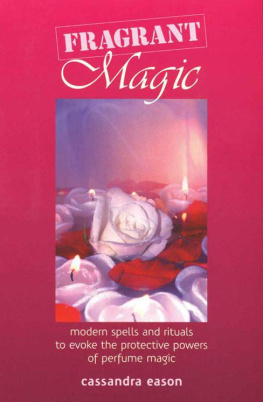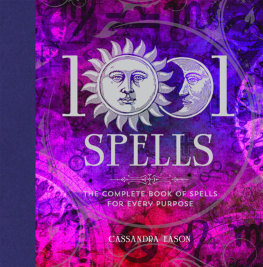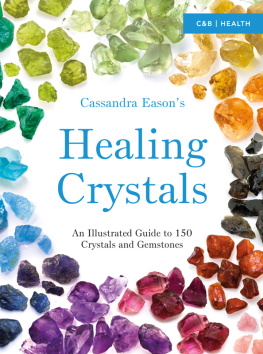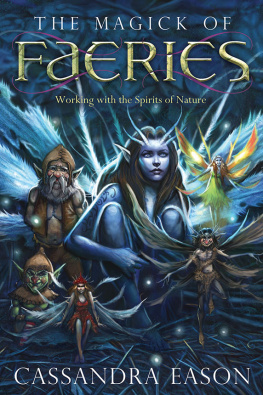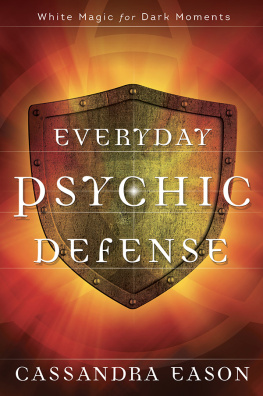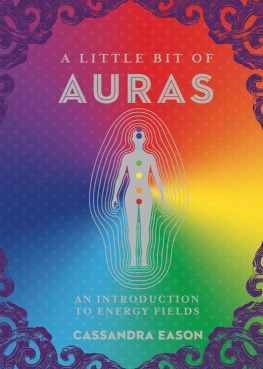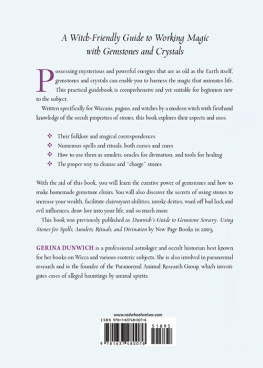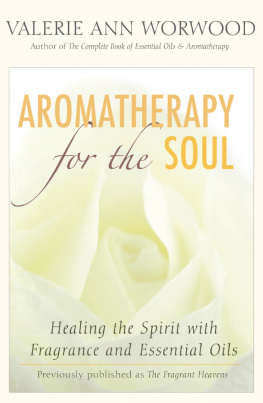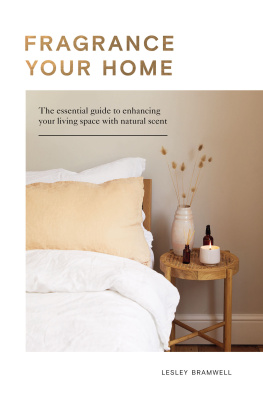Copyright
First published in Great Britain in 2004 by Quantum
An imprint of W. Foulsham & Co. Ltd
Copyright 2004 Cassandra Eason
A CIP record for this book is available from the British Library
The moral right of the author has been asserted
All rights reserved
Epub ISBN 9780572039783
Kindle ISBN 9780572039776
Book ISBN 9780572029395
The Copyright Act prohibits (subject to certain very limited exceptions) the making of copies of any copyright work or of a substantial part of such a work, including the making of copies by photocopying or similar process. Written permission to make a copy or copies must therefore normally be obtained from the publisher in advance. It is advisable also to consult the publisher if in any doubt as to the legality of any copyright which is to be undertaken.
Neither the editors of W. Foulsham & Co. Ltd nor the author nor the publisher take responsibility for any possible consequences from any treatment, procedure, test, exercise, action or application of medication or preparation by any person reading or following the information in this book. The publication of this book does not constitute the practice of medicine, and this book does not attempt to replace any diet or instructions from your doctor. The author and publisher advise the reader to check with a doctor before administering any medication or undertaking any course of treatment or exercise.
Note that some fragrances should not be used in pregnancy or in the case of specific medical conditions. Please consult your doctor if in doubt.
W. Foulsham & Co. Ltd
Capital Point, 33 Bath Road
Slough, Berkshire
SL1 3UF, England
www.foulsham.com
Table of Contents
Introduction
Fragrance is a very ancient and universal form of magic that enhances the everyday world by increasing our confidence, calming us when we are stressed and enabling us to tap into our own coping strategies. Fragrance can also quickly and effortlessly transport us into beautiful dreams and daytime visions when we need to relax or move away from the frantic world we live in. Anyone who applies a favourite perfume before meeting a lover or going for a job interview is, probably quite unconsciously, tapping into the powers inherent in fragrance to help us to reach for happiness or success if we truly want someone or something enough.
In Ancient Egypt it was believed that fragrances came from the gods, so mortals could become more perfect by absorbing them. In that society, as in countless other cultures, from Native North America to India, the concept existed that each flower, herb or tree has a unique essence or personality that can be absorbed by humans to amplify their own innate talents and charisma.
How fragrance magic works
It is hard not to be lifted physically and emotionally by the scents of a rose garden or a field of lavender, or by pine needles burning in the hearth. Aromas also awaken psychic powers that we all possess but may seldom use. By inhaling scents, whether from growing flowers and herbs or in the form of oils, incense or perfumes, we can connect to a cosmic memory bank called by the psychotherapist Carl Gustav Jung the collective unconscious from which we can draw wisdom and power. Through our genetic heritage it may also be possible to link psychically with the experiences and knowledge of people in different times and lands who used similar fragrances or walked in gardens or wind-blown forests filled with similar blossoms.
Indeed, fragrances can actually survive thousands of years. When the British Egyptologist Howard Carter opened the tomb of Tutankhamun in the Valley of the Kings on 4 November 1922, he was surprised to find the air still filled with scents that had lasted for 3,000 years, since the young kings burial in around 1322 BCE . In the antechamber were two huge wreaths of blue lotus, hibiscus and narcissus, which, although desiccated, were still recognisable.
Gardens have always been very special places. The world began, it is said in some cultures, in a garden, and in the Garden of Eden, in modern-day Iraq, Adams tree or one of its descendants still grows, albeit a little bedraggled.
What is more, fragrance has the power to heal not only our spirits but also our minds and bodies. Tibetan Buddhists sprinkle patients with or sometimes immerse them in water in which flowers have been soaked, and fragrant oils have been a powerful source of healing for centuries and remain so today, whether used in massage, in baths or in an oil burner.
The history of fragrance
The word perfume comes from the Latin phrase per meaning through and fumus meaning smoke. Indeed, the first scents were burned as incense offerings to the deities in the Middle East 6,000 years ago. Scented oils and fragrant waters for personal as well as ritual purposes became popular by the third millennium bce in Ancient Egypt, and barrels of fragrant oils and rich incenses were buried in the tombs of the wealthy for their use in the afterlife.
From the most ancient times, fragrant herbs were also hung from ceilings, in huts and palaces alike, to sweeten the air and for magical protection. From about the eleventh century ce in Europe, rushes were scattered on floors in homes, scented with lavender and pennyroyal, herbs that deterred fleas and rats. Flowers and herbs were also worn as garlands for health from Roman times. The childrens nursery rhyme Ring a Ring o Roses recalls the practice of carrying fragrant herbs and flowers to protect against plague epidemics, in this case specifically referring to the Great Plague of London in 1665.
The first modern perfume as we know it was created during the tenth century CE by the Islamic alchemist Avicenna, who distilled oil from rose petals and diluted the essence in water. Though early Christianity discouraged the use of perfumes for personal adornment, monasteries and convents had their own fragrant medicinal herb gardens. Indeed, Maria Prophetissima, often called the mother of alchemy, created a still for healing essential oils as early as the first century CE . Fragrance and health remained closely intertwined, and during the twelfth century the German mystic and herbalist Hildegard von Bingen (10981179) made the first healing lavender water to the glory of the Lord, a recipe adopted by young country girls eager to attract earthly lovers.
Eau de cologne, both for medical use and for adornment, was invented in 1732, when the Italian Giovanni Maria Farina made the first aqua admirabilis in Cologne in Germany. This was a mixture of neroli, bergamot, lavender and rosemary in grape spirit. The idea travelled to America, where the popular Florida water was a mixture of European eau de cologne with oil of cloves, cassia and lemongrass for added sparkle. No American beauty would set out for a dance without her refreshing water to dab on her wrists, so that she might polka the night through and in the cold light of morning be sufficiently alert to remind her would-be beau of the precise terms and conditions of his euphoric promises of rings and forevers.
During the twentieth century, advances in chemistry allowed the creation of more abstract modern perfumes that released different fragrances during the hours that they remained on the skin. Perhaps most famous is Chanel No. 5, the first completely synthetic mass-market fragrance, produced in 1921.
As we enter the twenty-first century, we are seeing a revival of interest in the aromas of the natural world; some of the older, single floral or woody fragrances such as sandalwood, rose and lavender are regaining popularity, and are often made by small country outlets using indigenous blooms. Bath products, even supermarket brands, are increasingly drawing on woodland and garden and moving away from environmentally unfriendly chemicals. Even kitchen products often contain tea tree oil, mimosa, eucalyptus and orange, so you can weave exotic aromatic daydreams as you wash the dishes.

